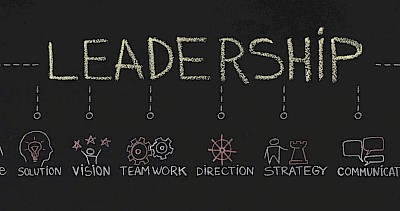
Argue successfully
Argue successfully
Whether specialist or manager - in almost every job, everyone has to present their point of view from time to time and convince a customer of the product or the boss of their own idea. However, simply communicating one's point of view is often not enough. If you want to convince your conversation partner of your point of view and argue successfully, you not only have to provide valid arguments, but also structure them clearly, formulate them precisely and be able to express yourself with the help of rhetorical skills and persuasive power. In this way, not only can one's own point of view be well represented; at the same time, conflicts can be avoided or effectively resolved. Better interpersonal communication as well as your personal success will thus become more likely. In this blog article, we will show you which aspects you need to consider in order to be able to argue successfully in discussions and negotiations.
Convincing listeners with good arguments
Valid arguments form the basis for being able to argue successfully. If your arguments are relevant and comprehensible, it is more likely that you will be able to convince your listener of your opinion. Depending on the type of argument, you should formulate problem- and goal-oriented arguments that you can also justify well. While factual arguments describe proven facts and you can prove them factually, plausibility arguments are based on the plausibility of your logical conclusions. Likewise, rebutting counter-arguments is a type of argumentation. Here, too, you should base your arguments on facts or everyday experience. Are you an expert in your field? People with some authority do not always have to argue their point of view. Even without evidence, expert opinions are usually considered correct.
Recognising & defending against attacks
Not every objection is to be understood as an accusation. Critically question whether your counterpart has perhaps not grasped the content of your point of view and try to find out by asking questions or paraphrasing. Always remain honest and objective, even if you do not agree with the counter-arguments of your interlocutor. Accept other views, suppress emotions that are running high and instead focus on refuting the arguments in a meaningful way and thus argue successfully.
Using body language correctly - posture, gestures & facial expressions.
As important as the content of your arguments is - rhetorical skills are not to be neglected if you want to argue successfully. Non-verbal signals and verbal expression play an important role if you want to argue successfully with persuasive power. First of all, pay attention to your posture, gestures and facial expressions. Standing up straight and an open body posture convey to your listener that you yourself are convinced of your assertion. Use light gestures to underline what you are saying. However, avoid gesticulating wildly with your hands or folding your arms and thus being perceived as nervous or dismissive. Similarly, your facial expressions are important. Here, too, less is more in the proverbial sense, so as not to appear artificial or affected.
Avoiding misunderstandings and arguing successfully with a clear form of expression
If you formulate your statements ambiguously and vaguely, you have to reckon with the fact that your interlocutor will misinterpret your arguments and misunderstandings will arise. In addition to the choice of words, the way an argument is packaged and expressed plays an important role. You should pay particular attention to your tone of voice. By using a clear and distinct voice and varying your tone of voice, you can emphasise your arguments and better capture your listeners. Choose a moderate pace of speech to always be well understood and emphasise particularly important aspects with your voice.
Structure of an argument
Successful argumentation requires structured argumentation tactics. First, it is important to clearly formulate the topic and one's own position. In the further course, valid arguments should then be put forward to support one's own position. Contrary to the typical structure of written discussions, which usually begin with the weakest argument and end with the strongest, you should not wait until the end to make your meaningful argument. While in written discussions you do not have an interlocutor who can interrupt you at any time and interject counter-arguments, this often happens in face-to-face discussions. So that no important arguments are lost or even forgotten, you should state your best arguments right at the beginning. Addressing possible counter-arguments and refuting them can also help to strengthen your own statement. If you already know what your counterpart thinks about your position, it is advisable to initially address aspects in which your opinions are not too far apart or in which you even agree, in order to start the discussion on a positive note.
Authenticity: Persuasiveness comes from within
You can only argue successfully if you really stand behind what you say. If you put your heart and soul into something, you can argue with enthusiasm and infect your potential opponent with it. Remember that the power of persuasion comes from your own authenticity and creates trust in your counterpart. If you are arguing on behalf of someone else, you may lack credibility in your argumentation. Nevertheless, it may happen that you have to represent a position for your company that may not fully correspond to what you personally stand for. In this case, it is necessary that you study the position to be represented extensively before the start of the discussion and train yourself in the inner attitude.
The secret to successful argumentation: Well prepared is (almost) everything
Before a negotiation, think about what you want to discuss. If you clearly define your goal beforehand and prepare arguments with good reasons, it will be easier for you not to be dissuaded from your plan even in difficult situations and to discuss in a goal-oriented manner. A detailed discussion with your discussion partners is also valuable.
Argue successfully: Knowing and responding to your interlocutor
Arguing successfully with little effort? This works especially well if you know your counterpart's strengths, weaknesses and views inside out. If you find yourself in a discussion situation with people you don't know that well, it is advisable to let your counterpart do the talking first. Listen to the other person's point of view and possibly adjust the course you wanted to take after having prepared well for the conversation. In the course of the conversation, specifically address the emotions, the needs as well as the interests of your counterpart and repeat what your opponent has said in a discussion round. This will ensure that you correctly understand your interlocutor's point of view, quickly identify weaknesses and take advantage of them.
The "Digital" Challenge
In today's world, more and more meetings and consequently discussions take place via the internet. While meetings via teams, Zoom & Co. make it much easier to work together at a distance, those involved are still sometimes faced with major challenges. Non-verbal signals, which are expressed in personal conversations through body language, are usually not apparent. All participants in the conversation must therefore pay particular attention to the tone of voice and the expressions of the other person in order to determine indications of possible agreement or disagreement.
Conclusion: Successful arguing must be learned
Arguing successfully requires more than just delivering good arguments. Train your rhetorical skills, for example, in our rhetoric seminar, prepare extensively for discussions and be responsive to all participants in the discussion. Think in advance about how you want to structure your discussion and be prepared to deviate from your planned tactics during the discussion. Would you like to develop your argumentation skills? In our argumentation seminar you will learn to argue confidently, convincingly and therefore successfully.











